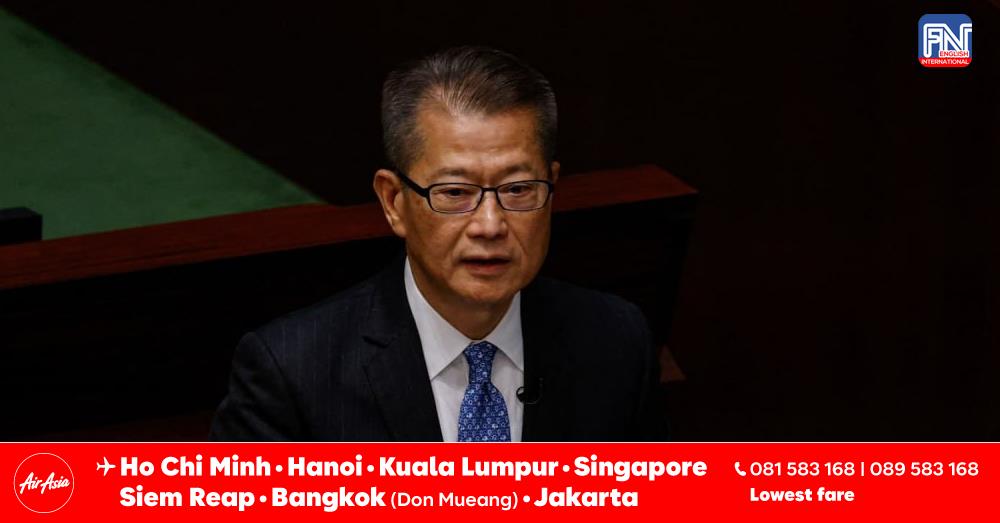HONG KONG, Feb 26 (Reuters) - Hong Kong aims to cut spending by slashing 10,000 civil service jobs in an effort to rein in a rising deficit, and plans a big AI push as it navigates headwinds from global economic uncertainty, geopolitical tensions and a weak property market.
"It gives us a clear pathway towards the goal of restoring fiscal balance in the operating account, in a planned and progressive manner," said the city's Financial Secretary Paul Chan in announcing the financial hub's annual budget.
Chan said 10,000 civil servant jobs would be cut by April 2027, representing a reduction of 2% of the civil service in each of the coming two years. Public sector salaries will also be frozen this year.
Chan said the "reinforced" fiscal consolidation programme would see a cumulative reduction in public expenditure by 7% from now till fiscal year ending on March 31, 2028.
The spending cut would lay a "sustainable fiscal foundation for future development", he said, after a sharp fall in revenue from land sales left the deficit at HK$87.2 billion, nearly double the previous forecast of HK$48.1 billion.
Separately, in line with China's growing push to develop self-reliance in AI and other high technology sectors including robotics, Chan said Hong Kong would "leverage its strength as an international platform for stepping up the development of the AI industry". The city has earmarked HK$1 billion for an AI Research and development institute.
Yet, some observers said the budget didn't go far enough, and called for more structural changes to address the city's strained finances.
"While the city's fiscal reserves provide a buffer, the escalating deficit demands immediate and strategic actions," said William Chan, a partner at Grant Thornton Hong Kong.
"To safeguard Hong Kong's future prosperity, we urge the government to immediately launch a comprehensive tax base expansion study."
The AI push and spending cut plans though cheered markets. The Hong Kong's Hang Seng Index was up 3% while the property and tech sub-indices rose over 3% and 4%, respectively.

Photo from Reuters




